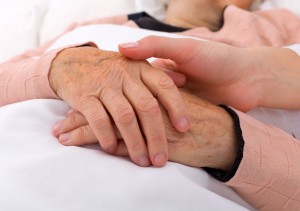 When someone you love is seriously injured in an accident, it can take a heavy toll on your mental, emotional, and physical health, too. Family members and other loved ones are often faced with suddenly becoming caregivers, and it is not an easy transition. The work involved can be so demanding that your physical health begins to fail. The emotional suffering can be overwhelming, especially if you lost your closest companion and confidant to an injury, such as brain injury, that prevents your companion from interacting with you as before.
When someone you love is seriously injured in an accident, it can take a heavy toll on your mental, emotional, and physical health, too. Family members and other loved ones are often faced with suddenly becoming caregivers, and it is not an easy transition. The work involved can be so demanding that your physical health begins to fail. The emotional suffering can be overwhelming, especially if you lost your closest companion and confidant to an injury, such as brain injury, that prevents your companion from interacting with you as before.
How to Begin?
Whether your loved one is expected to make a full recovery over time or suffer permanent disability, right now you are facing a multitude of challenges, and you need to know where to start and what you can do to help your injured loved one and yourself. You may not be thinking of yourself yet, but you need to, before caregiver fatigue sets in.
- Have a meeting with your family, close friends, and others you can call on for help, such as church members, to discuss your loved one’s needs and who can help with which tasks. Include your injured loved one in the discussion if that is possible.
- Find out about the resources available to you. This could include people who will come sit with your loved one for periods of time while you get a break, grocery delivery services, programs such as Meals on Wheels, and transportation for people in wheelchairs to get to doctor’s appointments when you don’t have your own wheelchair accessible van. Compiling this list and getting you set up for these programs is a good task to delegate to someone who is not able to be involved in daily care, but wants to help.
- If your loved one qualifies for Hospice, sign on for it right away.
- Get support for yourself. Consider attending a caregiver workshop. Join a caregiver support group. It is amazing how much you can learn from others who have already been in your position and you will need someone to talk to about what you are going through.
- Set up your home to make life easier on you and your injured loved one.
- Create an emergency preparedness plan that accommodates your loved one’s new needs, including back-up power for any special medical equipment.
- If necessary, seek legal help by finding a qualified lawyer. You may have a limited amount of time to bring your case to court.















